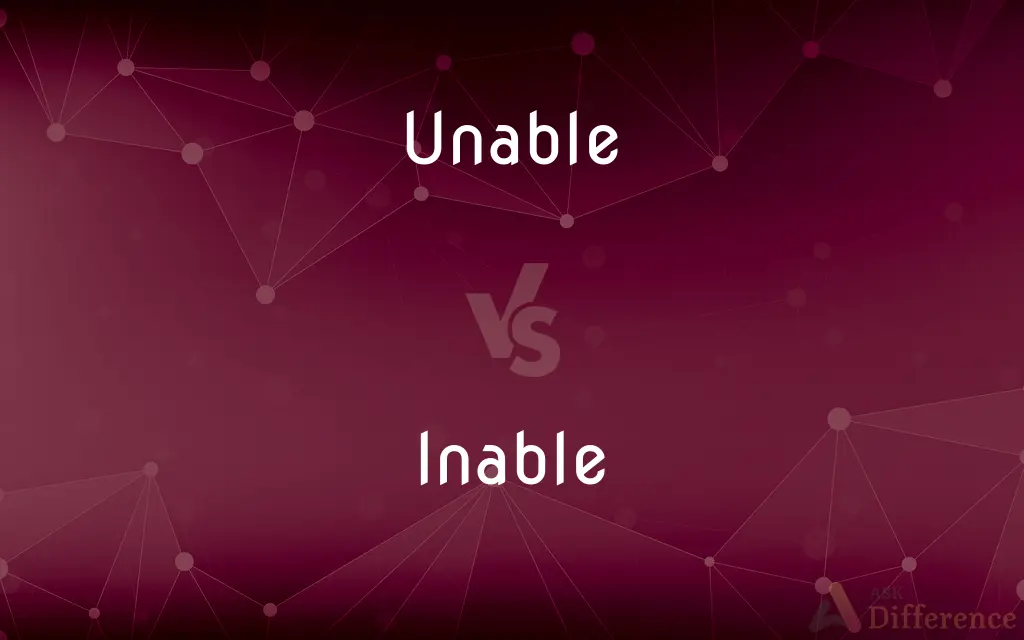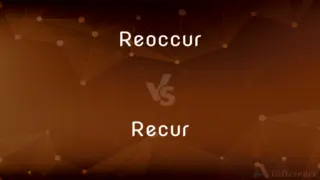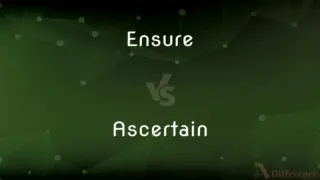Unable vs. Inable — What's the Difference?
Edited by Tayyaba Rehman — By Urooj Arif — Updated on March 3, 2024
Unable means lacking the skill, means, or opportunity to do something, while "inable" is not a standard English word; the correct term for implying capability is "enable."

Difference Between Unable and Inable
Table of Contents
ADVERTISEMENT
Key Differences
Unable is a commonly used word in English that describes a lack of ability, means, or opportunity to perform an action. It is often used to express that someone or something cannot do something due to various limitations. On the other hand, "inable" is often mistaken for a real word when individuals mean to use "enable" or describe the capacity to do something. "Enable" is the correct term that means to give someone or something the authority or means to do something, contrasting with "unable," which indicates incapacity.
The confusion might arise from the prefix "in-" which is sometimes thought to be a negation prefix like "un-". However, in this context, "in-" does not serve to create an opposite-meaning word to "able". Instead, the correct antonym of "unable" is "able," and the action of making something possible is "enable."
Using "unable" correctly in a sentence could be like saying, "He was unable to attend the meeting due to a prior commitment." This clearly communicates that the person could not attend the meeting. In contrast, a correct use involving capability would be, "Installing the new software will enable better data analysis," where "enable" is the correct term to use, not "inable."
Despite the nonexistence of "inable" in standard English, the importance of choosing the correct word to accurately convey whether someone can or cannot do something remains critical. Misuse or confusion of terms can lead to misunderstandings in communication.
Compare with Definitions
Unable
Lacking the necessary power, authority, or means; not able; incapable
Unable to get to town without a car.
ADVERTISEMENT
Inable
To enable.
Unable
Not able; lacking a certain ability.
Are you unable to mind your own business or something?
Inable
Unable, not able.
Unable
Lacking mental or physical capability or efficiency; incompetent
Unable to walk.
Inable
See Enable.
Unable
Usage Problem Not susceptible to action or treatment
A project unable to be financed with government funds. See Usage Note at able.
Unable
(aviation) Indicating that a requested course of action is not possible to carry out.
"November three seven kilo, climb and maintain twelve thousand." "Unable, we have pressurization problems. Maintaining nine thousand."
Unable
To render unable; to disable.
Unable
Not able; not having sufficient strength, means, knowledge, skill, or the like; impotent; weak; helpless; incapable; - now usually followed by an infinitive or an adverbial phrase; as, unable for work; unable to bear fatigue.
Sapless age and weak unable limbs.
Unable
(usually followed by `to') not having the necessary means or skill or know-how;
Unable to get to town without a car
Unable to obtain funds
Unable
(usually followed by `to') lacking necessary physical or mental ability;
Dyslexics are unable to learn to read adequately
The sun was unable to melt enough snow
Unable
Lacking in power or forcefulness;
An ineffectual ruler
Like an unable phoenix in hot ashes
Share Your Discovery

Previous Comparison
Reoccur vs. Recur
Next Comparison
Ensure vs. AscertainAuthor Spotlight
Written by
Urooj ArifUrooj is a skilled content writer at Ask Difference, known for her exceptional ability to simplify complex topics into engaging and informative content. With a passion for research and a flair for clear, concise writing, she consistently delivers articles that resonate with our diverse audience.
Edited by
Tayyaba RehmanTayyaba Rehman is a distinguished writer, currently serving as a primary contributor to askdifference.com. As a researcher in semantics and etymology, Tayyaba's passion for the complexity of languages and their distinctions has found a perfect home on the platform. Tayyaba delves into the intricacies of language, distinguishing between commonly confused words and phrases, thereby providing clarity for readers worldwide.















































